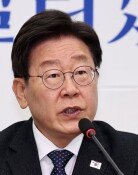U.S. Think Tanks Have Policy Impact
There are some 2,000 think tanks in the U.S. Ten of them, including the Heritage Foundation, Brookings Institution, Center for Strategic and International Studies (CSIS), Council on Foreign Relations, and Rand Corporation, are regarded as major think tanks that have a big say in American policymaking.
Formed as friendly gatherings of scholars in the early 20th century, think tanks started gaining momentum at the end of the Second World War as they began giving advice to the government. From the 1970s they proposed policies for political parties that held the same political view. They had many high-ranking government officials, who used to work for them. They emerged as leading policymaking organizations.
During the Reagan administration some 70% of all reports the conservative Heritage Foundation submitted to the government were adopted as government policies. The American Enterprise Institute for Public Policy Research, where vice president Dick Cheney and Undersecratary of state John Bolton worked, is called an extension of the White House. The liberal Brookings Institution, where under the Clinton administration Deputy Secretary of State Strobe Talbot and Deputy National Security Advisor James Steinberg worked, has been with the Democratic Party.
Secretary of State Henry Kissinger, National Security Advisor Brzezinski, Secretary of Defense James Schlesinger, and Secretary of Labor William Brock used to work for the CSIS, which has 22 million dollars in annual budget and 200 scholars.
It is common in the U.S that fellows at think tanks return to their original posts after serving in the government. This practice is good in that it combines theory with reality, enhancing the effectiveness of policies.
However, some criticize that think tanks are biased toward disseminating views and policies of certain company, political parties and interest groups.
weappon@donga.com







